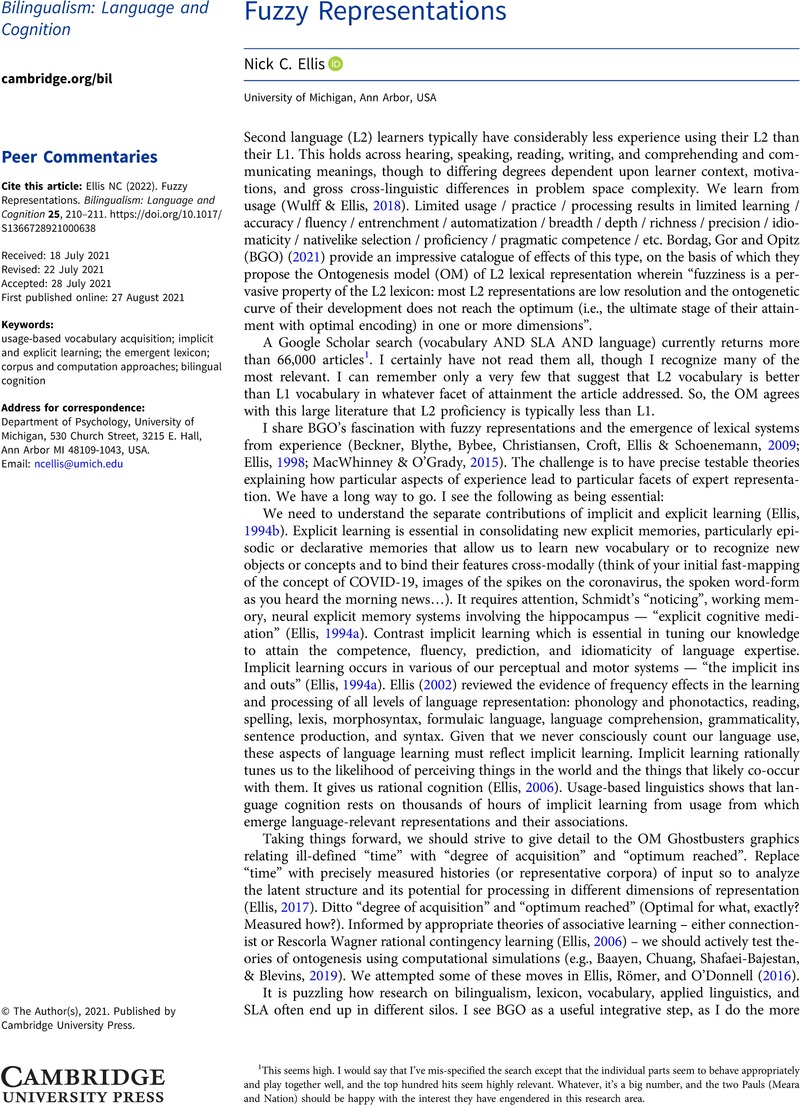Crossref Citations
This article has been cited by the following publications. This list is generated based on data provided by Crossref.
Bordag, Denisa
Gor, Kira
and
Opitz, Andreas
2022.
Refining key concepts of the Ontogenesis Model of the L2 lexical representation.
Bilingualism: Language and Cognition,
Vol. 25,
Issue. 2,
p.
236.
Hu, Zhen
and
Zhang, Haomin
2023.
Non-selective language activation in L2 lexical inference and text comprehension: Comparing skilled and less-skilled readers.
Heliyon,
Vol. 9,
Issue. 1,
p.
e12818.
Suethanapornkul, Sakol
and
Supasiraprapa, Sarut
2024.
Usage events and constructional knowledge: A study of two variants of the introductory-it construction.
Studies in Second Language Acquisition,
Vol. 46,
Issue. 2,
p.
355.
Uchihara, Takumi
Saito, Kazuya
Kurokawa, Satsuki
Takizawa, Kotaro
and
Suzukida, Yui
2024.
Declarative and Automatized Phonological Vocabulary Knowledge: Recognition, Recall, Lexicosemantic Judgment, and Listening‐Focused Employability of Second Language Words.
Language Learning,
Simon, Ellen
2025.
Second Language Phonology.




